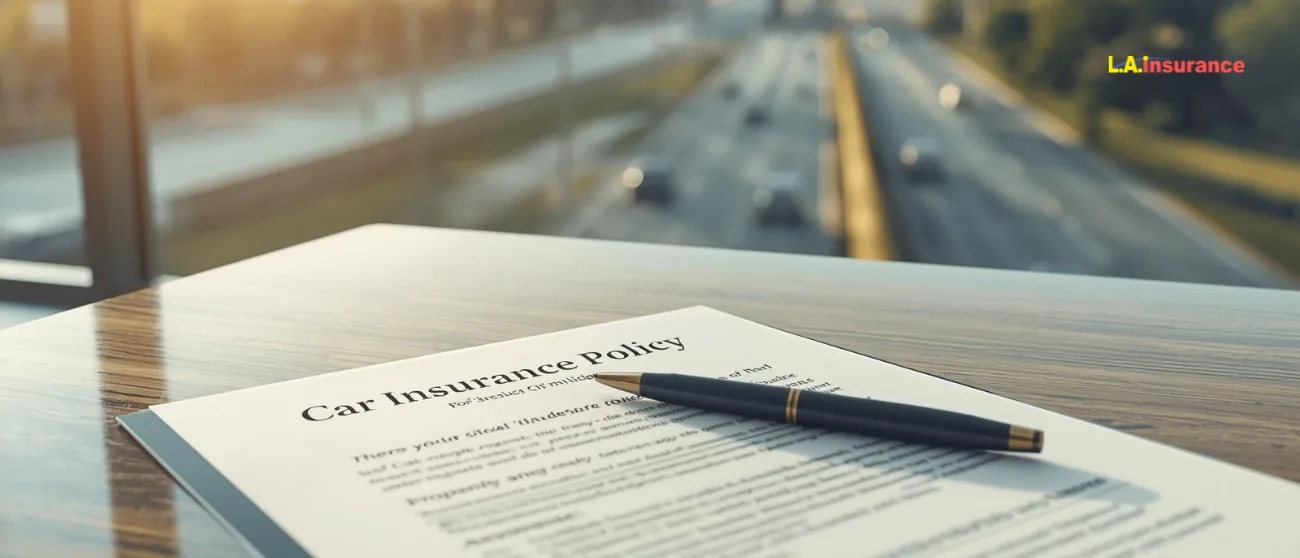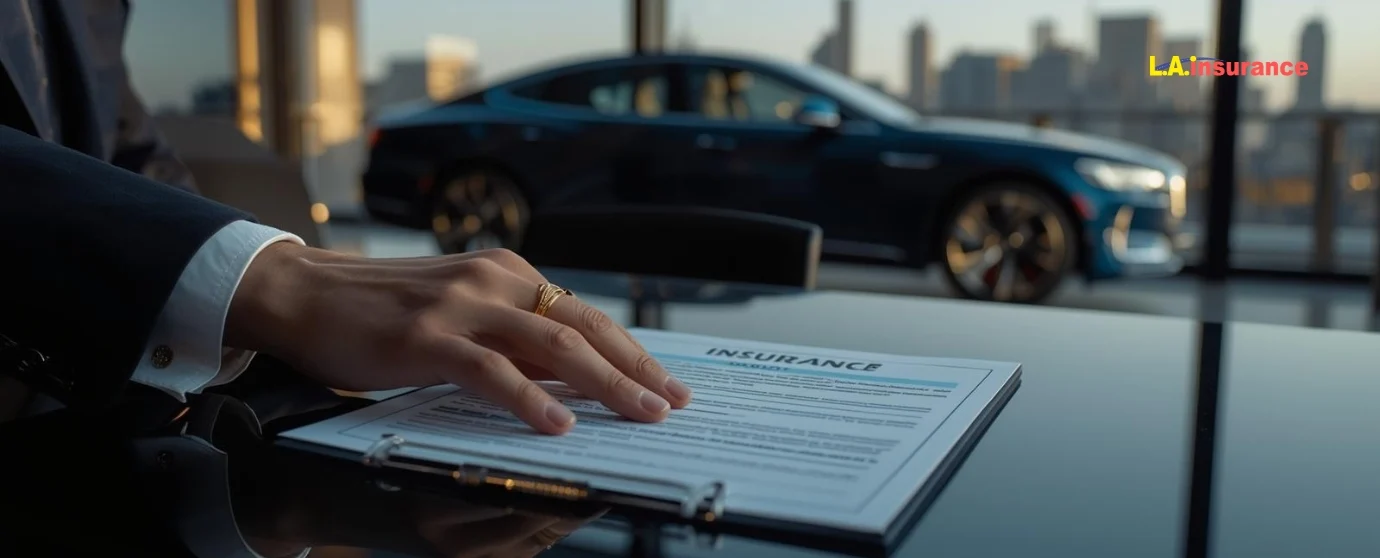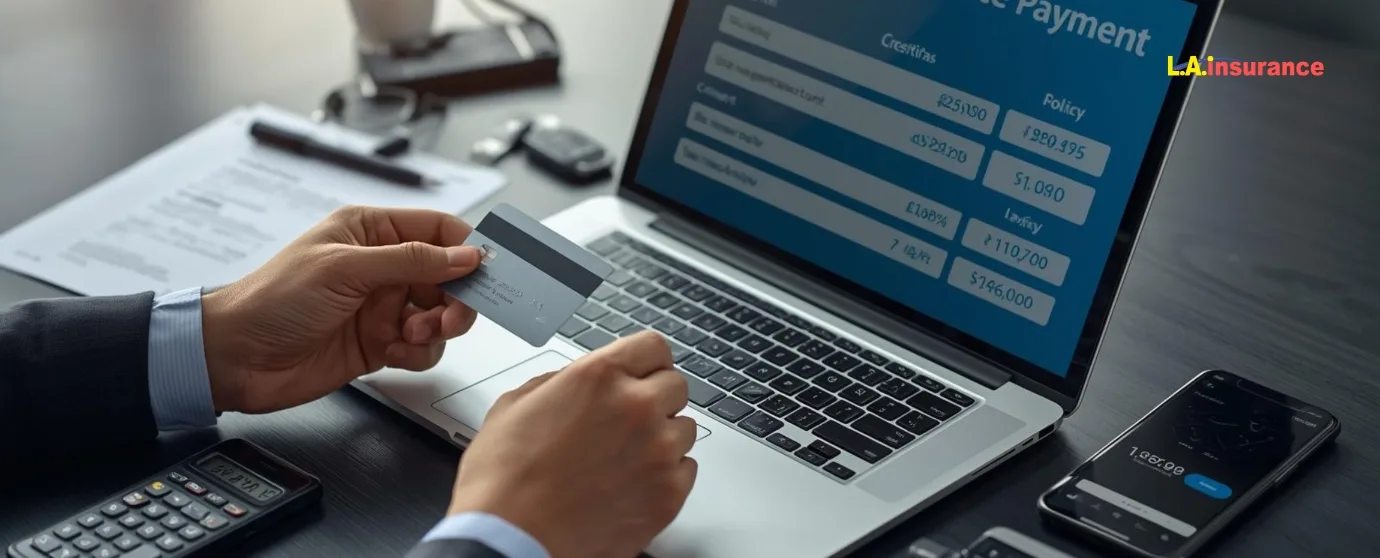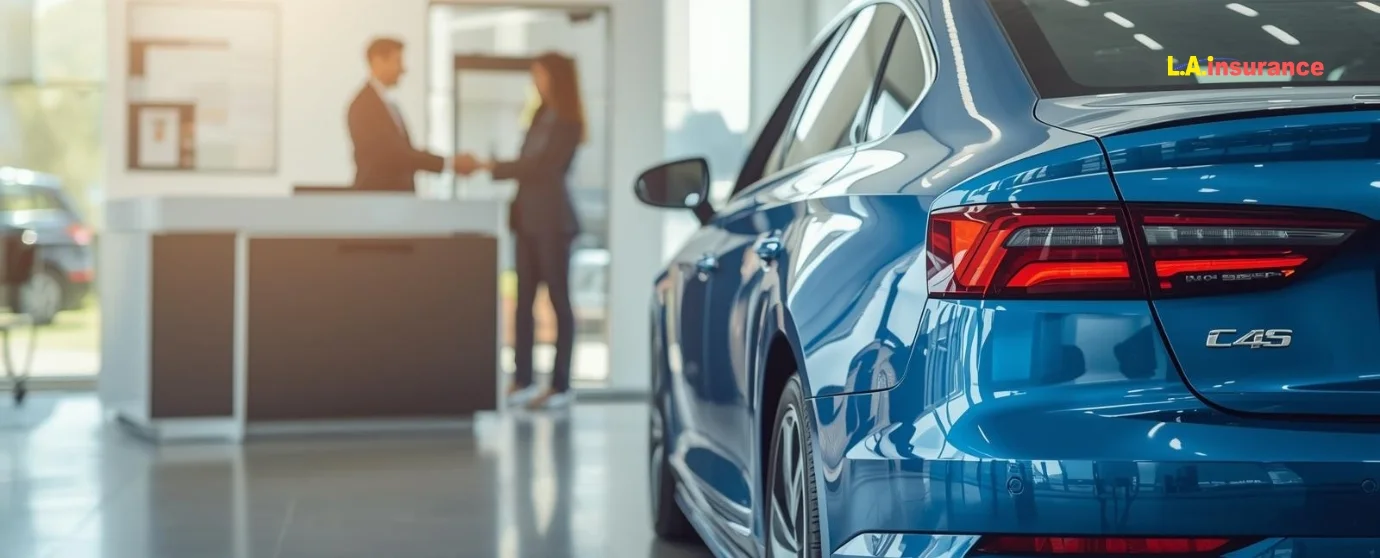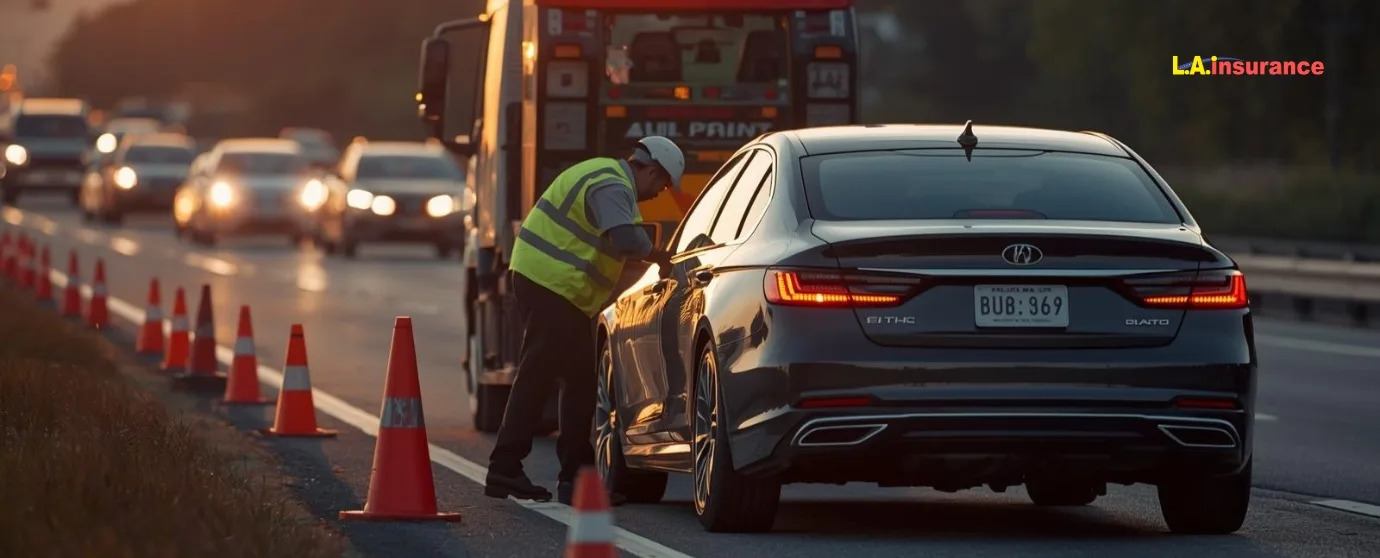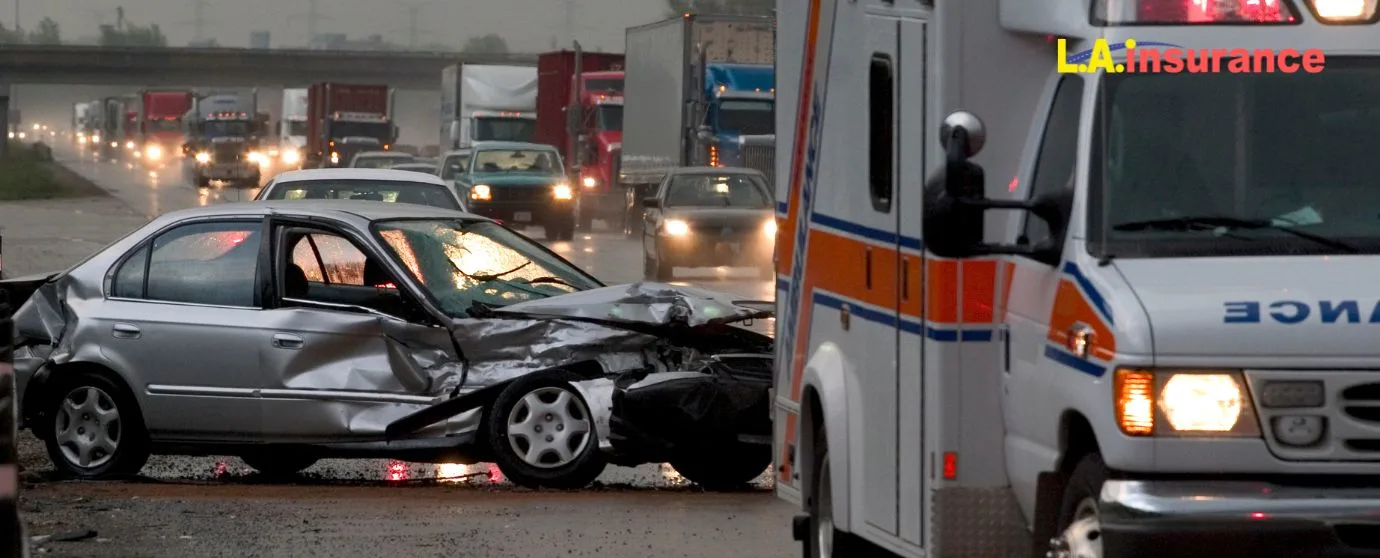
Publish Date: 23-11-2025
Auto Insurance
Last Updated: 16-12-2025
Does No Fault Accident Affect Insurance in the Future?
You drive carefully, yet an accident happens, and it wasn’t your fault. If this is your scenario, you might wonder, what happens to your insurance premium after an accident that you didn’t cause? Does a no-fault accident affect insurance in the future? The short answer is yes, it might. Although this is unfair, the truth is sometimes harsh. In this article, we’ll discuss how no-fault claims or not-at-fault accidents can impact your auto insurance premium.
What Is a No-Fault Accident?
A no-fault accident means you weren’t responsible for causing the crash. In simple terms, it’s when another driver (or situation) led to the car accident, not you. Still, you file a claim with your own insurance company for damages and injuries, instead of chasing the at-fault driver’s insurer and trying to prove you’re innocence.
The idea of no-fault insurance is to make things faster and fairer. Rather than waiting for fault investigation or a lawsuit, your insurer covers your medical bills, property damage, or personal injury through personal injury protection (PIP). So, you don’t face any delays and can avoid legal disputes about who caused what.
Struggling to pay costly car insurance premiums? Switch to L.A. Insurance today. We provide affordable full coverage car insurance and don’t raise your rate if you didn’t cause the accident. Contact our agent, buy online, or simply call us at (800) 893-9393.
Will My Insurance Go Up After a No-Fault Accident?
The short answer is yes. Your insurance will likely go up in the future for a no-fault accident claim if your own insurance company has to pay for the losses. This may feel unfair, but that’s how insurance works. In case you file a claim against an at-fault party’s insurance company, then you’re not supposed to face any premium hikes.
Fortunately, in some states, laws may prevent insurers from raising your car insurance rates after a no-fault claim. For instance, California state laws under Proposition 103 prohibit insurance companies from increasing the premium after an accident you were not at fault for. Oklahoma does the same. But this isn’t true for every state. Some insurers might still see any accident involvement as a signal of higher risk and increase your rate anyway.
Several factors matter when it comes to raising premiums after a no-fault accident:
- Your driving history
- Whether you filed a claim under your own policy
- How big the damage or injury was
- Your state laws
Learn about other key factors that directly affect your car insurance rates:
- Age (how age shapes your rates)
- Gender (how gender can play a role in determining car insurance rates in some states)
- Make and model (the type of vehicle you drive also determines the auto insurance rate)
- Credit score (In many states, credit score also affects your costs)
- Marital status (Whether you are single or married can influence your rates)
- Annual mileage (how much you drive each year can be factored in when setting your rates)
How Does a No-Fault Accident Affect Car Insurance Cost?
When you have a no-fault accident, here’s how the cost can be affected:
- 1. Risk perception jumps: Whether you’re at fault or not at fault, when you file a claim, your insurer may view the incident as a sign you’re more likely to make a claim in the future. So, this risk profiling may trigger a premium increase.
- 2. Claim filing matters: If you file a claim under your own coverage (for example, your collision or uninsured motorist coverage), that often raises a red flag with insurers, more so than if the at-fault party pays.
- 3. Severity and history amplify impact: A Smaller fender-bender may not raise your rates, but major accidents or multiple claims stack up and cost you more.
- 4. State laws and insurers' policies vary: As we said, some states may not allow insurers to raise your premium after a no-fault accident claim. But other states might not have such laws where insurers are free to raise rates if they see you as high-risk.
When Does a No-Fault Accident Not Affect Car Insurance in the Future?
No-fault accident doesn’t always guarantee a premium hike. As has been said, it depends on what happens after the crash and how your insurer and state laws handle the claim.
Here are a few scenarios when your insurance cost may not go up after a no-fault accident:
- You weren’t at fault, and your policy’s insurer recovers all costs from the other driver’s insurer.
- You live in a state that prohibits premium increases for drivers who are completely fault-free in the crash. (As mentioned, some state laws protect drivers when they’re not responsible). You have an accident forgiveness or similar benefits built into your policy that apply even for non-fault collisions.
- The damage or injury was minor, and you decided not to file a claim under your own coverage (so your insurer’s risk doesn’t go up).
- Your insurer treats the incident as “no claim” because the claim was handled entirely by the at-fault driver’s insurer, and your record stays clean.
- The crash occurred, but you notified your insurer properly, the liability was clearly the other party’s, and you maintained a long, clean driving history (which keeps your risk profile favorable).
How Much Will Car Insurance Rates Increase After a No-Fault Accident?
According to the Consumer Federation of America, drivers may see an average premium increase of 10% after a no-fault accident. Progressive increases premiums the most at 16.6% for no-fault accident claims. And State Farm doesn’t penalize not-at-fault drivers at all.
So, if you’re paying, let’s say $850 per year for minimum auto insurance coverage before a no-fault accident claim, you might end up paying, on average $935 per year after a no-fault claim. This is normally effective when you renew your policy.
Also Read: How much does a car insurance rate go up after an accident?
No-Fault vs. At-Fault Accident: Impact on Insurance Rates
An at-fault accident usually increases your rate by a substantial amount compared to a no-fault accident. In the case of no-fault, some might not even face any premium hike at all.
Here's a table that clearly illustrates the typical difference in impact on your car insurance rates:
Accident Type | Typical Increase in Premium | Example Impact on $69/month National Average |
At-fault accident | 20% to 50% | $83 to $104 per month |
No-fault accident | 0% to 10% | $69 to $76 per month |
Do No-Fault Accidents Raise Rates in No-Fault States Like Michigan?
In states like Michigan or Florida, which use a no-fault insurance system, your insurance company still pays for your medical bills, and in many cases, the other driver’s damage immediately, no matter who caused the crash.
That said, being in a no-fault state doesn’t guarantee that a no-fault accident won’t affect your rates. In Michigan, for example, even if you weren’t at fault, you could see an increase because nothing in Michigan law expressly forbids it (Via MichiganAutolaw.com).
In Florida, insurers are less likely to hike your rate for a purely non-fault crash. However, they can still raise it if you’re found at fault or the accident is severe.
Can I Apply for Accident Forgiveness for a No-Fault Accident?
Yes, you can certainly apply for accident forgiveness, even after a no-fault accident, if your insurer offers it. Accident forgiveness can either be included as an endorsement or may apply to a first accident for good drivers, helping protect them from a rate increase after a claim, especially when the accident wasn’t their fault. Not every company includes it automatically, so be sure to check your insurance policy details.
Some insurers offer accident forgiveness coverage only to long-term customers with clean records. Others may allow you to purchase it as an add-on. Additionally, it’s not available in every state. But if it is available in your area, it could be helpful in scenarios like a no-fault accident claim and may keep your premium unchanged.
Ways to Avoid a Rate Increase After a No-Fault Accident Claim
Although your rate isn’t supposed to increase if you’re purely not at fault for an accident, you can still face a higher premium while renewing your policy. But don’t worry! There are ways to avoid a rate increase after a no-fault claim:
- Report the accident honestly, but avoid unnecessary small claims that could flag you as higher risk.
- Ask your insurer about accident forgiveness before renewal, and see if it applies to your situation.
- Provide evidence of non-fault, such as police reports or witness statements, to protect your record.
- Compare quotes from other insurance companies, as some insurers treat no-fault claims more leniently.
- Take a defensive driving course to show responsibility and lower your car insurance rate.
- File a claim under the at-fault party’s insurance company.
- Maintain a clean driving record since consistent safe driving offsets minor claims over time.
- Increase your insurance deductible slightly to lower your premium if the rate does go up.
- Bundle your policies (home, auto, etc) to get loyalty discounts that balance out small increases.
The Bottom Line
A no-fault doesn’t always mean your insurance rate won’t be affected by it. Some insurance companies might still see risk, while others may ignore it. That’s why always best to keep your driving record clean, compare quotes when you renew your auto insurance, and ask about accident forgiveness.
No-Fault Accident Impact on Car Insurance FAQs
How do insurers treat no-fault accidents?
Insurers usually review no-fault accidents as part of your claim history, even if you didn’t cause them. Some may not raise your insurance rate, especially if the other driver was clearly responsible. Others might see it as a sign of potential higher risk and apply a small increase. It all depends on your insurer’s policy, state laws, and your driving record.
Will a no-fault accident appear on your driving record?
Yes, most no-fault accidents appear on your driving record or on the national insurance database for roughly 3 to 5 years. As these will be marked as non-fault, they won’t carry the same weight as an at-fault accident. But yes, insurers can still see it.
Will my insurance premium increase after no-fault claims in Michigan?
In Michigan, which is a no-fault state, insurers can raise your insurance premiums even if you weren’t at fault. The law doesn’t stop them from doing so.
What are the consequences of a no-fault accident claim?
Filing a no-fault accident claim may keep your medical and repair costs covered, but it could still impact your future rates. Your claim gets recorded in the Comprehensive Loss Underwriting Exchange (CLUE) database, which other insurers can see. Insurers can label you as “higher risk” if you file too many claims, even no-fault ones.
Does your insurance go up if someone hits your parked car?
Usually, no, if you can prove it wasn’t your fault. If the other driver is identified, their insurance company covers your damages. But if they’re not found, and you file under your own coverage, it might cause a small premium increase.
Editorial Disclaimer
The information provided on this blog is for general informational purposes only and does not constitute professional insurance, legal, or financial advice. Coverage and rates are subject to individual eligibility, underwriting guidelines, and state availability. For specific questions regarding your policy or to get an accurate quote, please contact a licensed L.A. Insurance agent directly. We're an independent agency and not a direct insurance carrier. For more information on how we operate and handle your data, please see our Terms and Conditions and Privacy Policy.
Tag :
Auto insurance
Comercial Auto
best auto insurance
